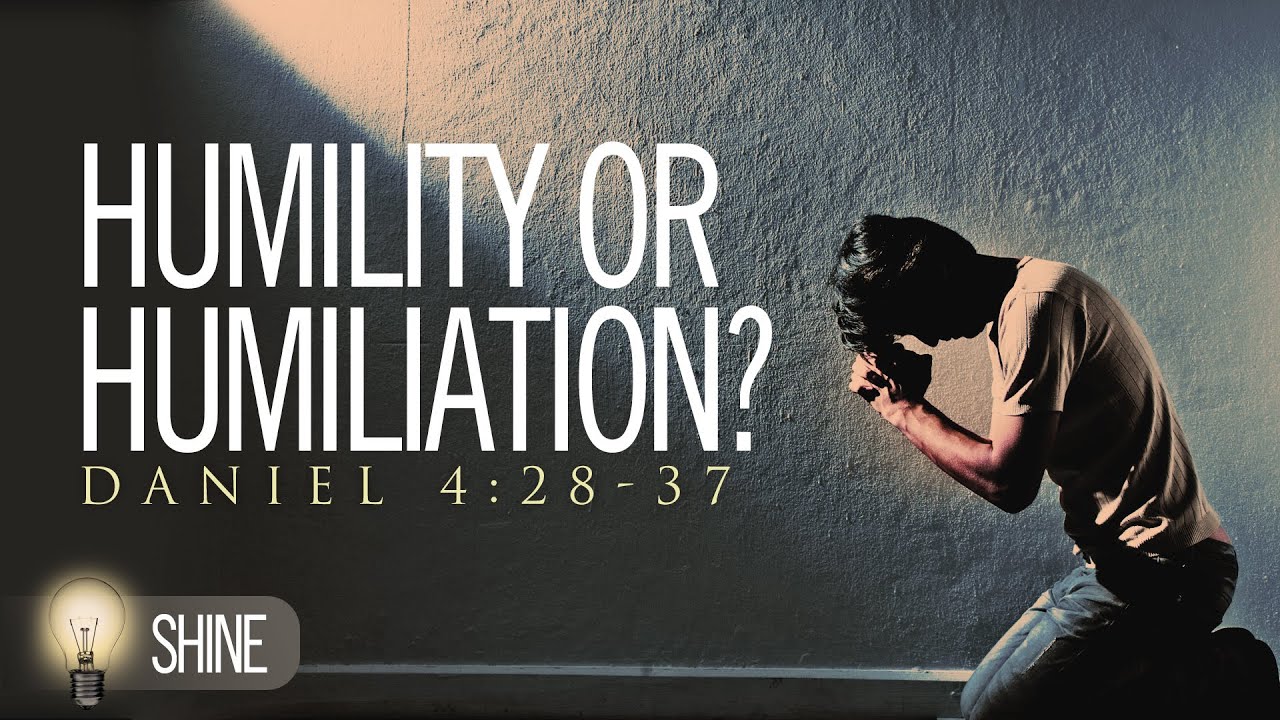
The Fine Line: Understanding Humility and Avoiding Humiliation
In a world that often celebrates achievement and self-promotion, the concepts of humility and humiliation can become blurred. While one is a virtue lauded across cultures and religions, the other is a deeply unpleasant experience. Understanding the nuances between humility and humiliation is crucial for navigating social interactions, fostering personal growth, and maintaining a healthy sense of self. This article aims to explore the subtle distinctions between these two seemingly related concepts, offering insights into how to cultivate humility while avoiding the pitfalls of humiliation.
Defining Humility: A Strength, Not a Weakness
Humility is often misunderstood as a lack of confidence or a self-deprecating attitude. However, true humility is a balanced and realistic assessment of one’s own strengths and weaknesses. It involves recognizing that we are all fallible, that we all have limitations, and that we are not inherently superior to others. A humble person acknowledges their accomplishments without arrogance and accepts their shortcomings without excessive self-criticism. It’s about having a grounded perspective and understanding your place in the larger scheme of things. [See also: The Power of Self-Awareness]
Think of it this way: humility isn’t about thinking less of yourself; it’s about thinking of yourself less. It allows you to appreciate the contributions of others and to learn from their experiences. It fosters empathy and compassion, as you recognize the shared humanity that binds us all. Someone who embodies humility is often approachable, respectful, and open to new ideas. They are more likely to be effective leaders, collaborators, and friends.
The Benefits of Embracing Humility
- Improved Relationships: Humility fosters stronger and more meaningful relationships. When you are humble, you are more likely to listen to others, value their opinions, and treat them with respect. This creates a foundation of trust and understanding.
- Enhanced Learning: A humble mindset allows you to be more receptive to learning. You are more willing to admit when you don’t know something and to seek out guidance from others. This openness to learning leads to continuous growth and development.
- Greater Resilience: Humility can help you build resilience in the face of adversity. When you are not overly attached to your own ego, you are better able to cope with setbacks and failures. You can learn from your mistakes and move forward with a more realistic perspective.
- Increased Self-Awareness: Practicing humility encourages introspection and self-reflection. You become more aware of your own strengths and weaknesses, allowing you to make more informed decisions and to live a more authentic life.
Understanding Humiliation: A Painful Experience
In stark contrast to humility, humiliation is a profoundly negative experience. It involves feeling shame, embarrassment, and a sense of loss of dignity. Humiliation can occur in a variety of situations, from public shaming to private betrayals. It often involves feeling exposed and vulnerable, as if your flaws and weaknesses have been laid bare for all to see. [See also: Coping with Public Shaming]
The experience of humiliation can be deeply damaging to one’s self-esteem and sense of worth. It can lead to feelings of isolation, anxiety, and depression. In some cases, humiliation can even trigger post-traumatic stress disorder (PTSD). It’s important to recognize the signs of humiliation and to take steps to protect yourself from its harmful effects.
The Different Forms of Humiliation
- Public Humiliation: This involves being shamed or ridiculed in front of others. Examples include being publicly criticized, being the target of jokes, or being exposed for a mistake or wrongdoing.
- Private Humiliation: This occurs when you are humiliated in a private setting, such as in a relationship or in a family. It can involve being betrayed, being manipulated, or being subjected to emotional abuse.
- Self-Humiliation: This involves feeling ashamed or embarrassed about something you have done or said. It can be triggered by making a mistake, failing to meet expectations, or acting in a way that you regret.
The Key Differences: Context, Intention, and Impact
The distinction between humility and humiliation often lies in the context, intention, and impact of the situation. Humility is a voluntary choice, a conscious decision to approach life with a sense of openness and self-awareness. It is driven by a desire to learn, to grow, and to connect with others. Humiliation, on the other hand, is often imposed upon you, either by others or by your own self-criticism. It is driven by a desire to shame, to control, or to inflict pain.
The impact of humility is generally positive. It leads to stronger relationships, enhanced learning, and greater resilience. The impact of humiliation, however, is almost always negative. It leads to feelings of shame, embarrassment, and a loss of self-esteem. It can damage relationships, hinder learning, and erode resilience.
Consider this example: A CEO admits to their team that they made a mistake that cost the company money. If done with humility, the CEO accepts responsibility, outlines steps to correct the mistake, and encourages open communication about how to prevent similar errors in the future. The team might respect the CEO more for their honesty and willingness to learn. However, if the CEO is publicly berated by the board of directors for the same mistake, that would be an act of humiliation. It would likely damage the CEO’s reputation and morale, and could create a climate of fear and mistrust within the company.
Cultivating Humility and Avoiding Humiliation
So, how can you cultivate humility in your own life and avoid the pitfalls of humiliation? Here are a few practical tips:
Embracing Humility:
- Practice Self-Reflection: Regularly take time to reflect on your own thoughts, feelings, and actions. Identify your strengths and weaknesses, and be honest with yourself about your limitations.
- Seek Feedback: Ask trusted friends, family members, or colleagues for feedback on your behavior. Be open to hearing constructive criticism, even if it’s difficult.
- Practice Gratitude: Take time to appreciate the good things in your life. This can help you develop a more balanced perspective and to avoid becoming overly focused on your own achievements.
- Serve Others: Find ways to contribute to your community or to help those in need. This can help you develop empathy and compassion, and to recognize the shared humanity that binds us all.
Avoiding Humiliation:
- Set Boundaries: Establish clear boundaries in your relationships and in your interactions with others. This can help you protect yourself from being taken advantage of or being subjected to abuse.
- Practice Self-Compassion: Be kind and compassionate to yourself, especially when you make mistakes or experience setbacks. Remember that everyone makes mistakes, and that it’s important to learn from them and move forward.
- Avoid Public Shaming: Refrain from publicly shaming or criticizing others, even if you disagree with their behavior. This can create a toxic environment and can damage relationships.
- Seek Support: If you have experienced humiliation, reach out to a trusted friend, family member, or therapist for support. Talking about your experience can help you process your emotions and to heal from the trauma.
Conclusion: Finding the Balance
Humility and humiliation are two distinct concepts that can have a profound impact on our lives. By understanding the nuances between them, we can cultivate humility as a strength and avoid the damaging effects of humiliation. Embracing humility allows us to connect with others, to learn and grow, and to build resilience in the face of adversity. By setting boundaries, practicing self-compassion, and seeking support when needed, we can protect ourselves from the pain and shame of humiliation. Ultimately, finding the balance between these two concepts is essential for living a fulfilling and meaningful life. It’s about being grounded, understanding your place, and treating yourself and others with respect and compassion. Recognizing the difference between genuine humility and experiencing humiliation is a crucial step towards personal growth and healthier relationships. The path to authentic humility requires constant self-reflection and a conscious effort to learn and improve. This journey helps you to avoid the pitfalls of humiliation, leading to a more balanced and fulfilling life. [See also: Building Resilience and Self-Esteem]

